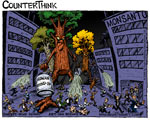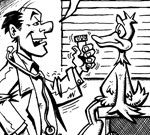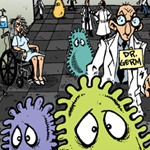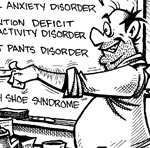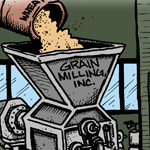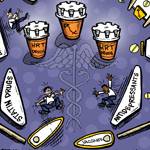Zinc Benefits - Zinc is Not Just for Colds Anymore
| Share on Facebook | Share on Twitter | Share on Google+ |
Zinc is a frequently forgotten mineral nutrient. The most important of all zinc benefits is the ability to make enzymes.
The human body uses zinc in every kind of enzyme it makes, and zinc is the second most abundant mineral in the body, after iron. Most of the zinc in the body is in the brain, bones, kidneys, and liver, with especially high concentrations in parts of the eye and in the prostate in men. One of the most important benefits of zinc for men is protection of the prostate and increased fertility.
Every gene in the human body needs zinc compounds to express itself. Zinc helps young cells develop, and it sensitizes older cells and cancerous cells to the apoptosis factors that end a cell's life cycle to allow a younger, healthier cell to take its place.
What Zinc Deficiency Cause
In terms of observable symptoms, what is zinc good for?
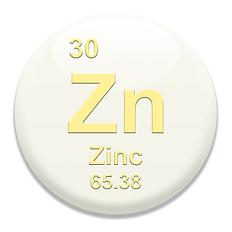 When people don't get zinc, deficiency symptoms can be severe. In children with severe deficiencies of zinc, the most debilitating complication is diarrhea. In older adults with severe zinc deficiency, the most serious complication is pneumonia. Both diarrhea and pneumonia are potentially fatal, and maintaining nutritional minimums of zinc can be life-saving.
When people don't get zinc, deficiency symptoms can be severe. In children with severe deficiencies of zinc, the most debilitating complication is diarrhea. In older adults with severe zinc deficiency, the most serious complication is pneumonia. Both diarrhea and pneumonia are potentially fatal, and maintaining nutritional minimums of zinc can be life-saving.
But just as there are nutritional minimums for zinc, there are also nutritional maximums. And not every form of zinc works for every health application. Here are five things everyone needs to know about zinc supplements.
- About 1/3 of all people don't get the minimum amount of zinc from their diets, usually because they eat too many whole grains and high-fiber foods, which interfere with zinc absorption. Vegans and vegetarians are especially likely to need zinc supplements.
- Most zinc supplements provide the absolute minimum of zinc needed for health. Children under the age of 3 need at least 3 milligrams of zinc per day, from food and supplements. Children from ages three to eighteen generally need about 8 milligrams of zinc per day. Adult women need 8 milligrams per day, adult men need 11 milligrams per day, and pregnant women and nursing mothers need 14 milligrams per day-at a minimum.
- Taking more than 40 milligrams of zinc a day can cause problems with the skin, immune system, and central nervous system. It's OK to get up to about 60 milligrams of zinc a day, for up to two weeks, while you are fighting a cold. It's never a good idea to take more than 100 milligrams a day unless you have a medically diagnosed zinc deficiency.
- The best form of zinc for fighting a cold is a lozenge that you suck rather than chew. Slow release of zinc keeps the colds virus from invading the tissues lining your nose and throat. You don't want to raise zinc levels for your whole body-just your upper respiratory tract.
- If you take a zinc supplement and it has not aftertaste, you probably needed it. If you take a zinc supplement and it tastes bad (bitter or metallic), you probably didn't. The more you need zinc, the less objectionable it tastes. Your tongue is a good guide to whether you need to take more zinc.
More people have zinc deficiencies than suffer zinc toxicity symptoms, but both deficiency and excess can cause serious health problems. To prevent zinc toxicity, be sure that you also get 1 to 3 milligrams of copper every day from your nutritional supplements.
-
Skin CareMen Skin Care
-
Free ResourcesFree eBooks
-
Health is not a condition of matter, but of Mind.Mary Baker Eddy
-
What We RecommendIf you do an analysis of the ingredients in a bottle of
 Total Balance and compare with other products you will find that it provides exceptional value for money…even against simple mass produced products with lower bottle costs.
Total Balance and compare with other products you will find that it provides exceptional value for money…even against simple mass produced products with lower bottle costs.
-

